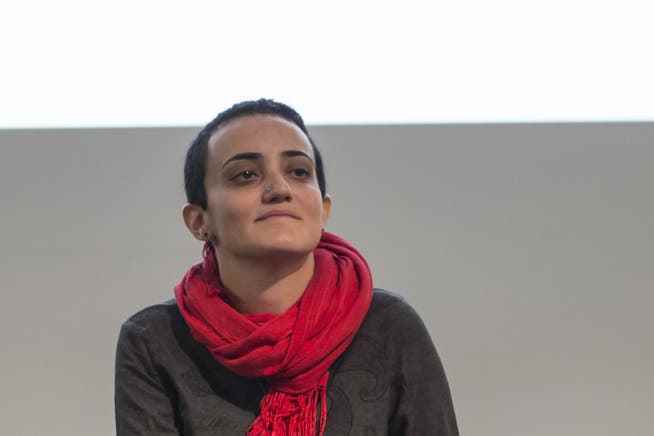Because of the unsatisfactory human rights situation, American President Biden decides to withhold part of the annual military aid to Egypt. However, this will hardly change anything in the fundamental way in which President Sisi’s regime is dealt with.
Egypt’s President Abdelfatah al-Sisi has had to forgo $130 million in US military aid for the time being.
At the beginning of the year, Egypt’s President Abdelfatah al-Sisi sent his generals on a big shopping spree: they bought new weapons for several billion dollars. Now Cairo needs to be a little more frugal, at least a little. US President Joe Biden has decided to withhold part of annual military aid, leaving Egypt $130 million short.
The reason for this is the unsatisfactory human rights situation on the Nile, according to the Americans. Earlier, Democratic congressmen had put pressure on the Biden administration to take a tougher stance on Cairo. Human rights organizations have been demanding this for a long time.
However, the cut is moderately severe: the 130 million corresponds to only a tenth of the total of 1.3 billion dollars that Egypt’s army receives annually from Washington.
Nevertheless, it is a positive sign that the US is finally using its influence, says Nicole Widdersheim of Human Rights Watch (HRW). “But President Biden should actually go further and explicitly side with those defending human rights in Egypt.”
Four journalists have just been arrested
Your organization has been accusing the government in Cairo of serious human rights violations for years. The reports by HRW and other groups repeatedly mention indiscriminate arrests, harassment and torture by the security services.
Just two weeks ago, four journalists from the online newspaper Mada Masr were arrested for reporting on allegations of corruption against politicians close to Sisi. The women are now threatened with a procedure for “defamation and endangering the social peace”.
Mada Masr, one of the last remaining independent newspapers in Egypt, was targeted by the state back in 2019. At that time, the editorial offices were stormed and several employees were temporarily arrested. The newspaper’s website is also blocked in Egypt.
Independent journalists already have a hard time in the country. According to Reporters Without Borders 22 of them are in prison and strict laws make it almost impossible for non-state media makers to be officially registered. Mada Masr, for example, says she has been trying to do this for four years without success.

Lina Attalah, editor-in-chief of the independent online newspaper Mada Masr, was arrested along with three colleagues.
Egypt’s government denies the allegations
Egypt’s government has denied the human rights activists’ allegations. President Sisi, who came to power after the military coup in 2013, justifies the harsh course of his security services with the alleged terrorist threat posed by Islamists.
He brutally persecutes the once influential Muslim Brotherhood. In addition, his army has been waging a bloody campaign against the extremists of the Islamic State in the Sinai Peninsula for years. Arrests, according to Cairo, were linked to the fight against terror.
For a long time Sisi drove well with it. Despite all the criticism, he hardly had to fear any consequences. Biden’s predecessor Donald Trump once called the Egyptian his “favourite dictator”.
Under the current US President, who announced before his election that he would treat autocrats like Sisi or the Saudi Crown Prince Mohammed bin Salman harder in future, he is now facing a somewhat rougher wind. For example, the United States suspended part of its aid payments for the second time because of the human rights situation.
Actually, Sisi depends on goodwill
At the moment, Sisi is actually dependent on goodwill from the West: his country is suffering from high food and oil prices as a result of the war in Ukraine. In addition, the global climate conference COP27 will take place in Sharm el Sheikh in November, at which Egypt wants to present itself as a pioneer in climate protection.
The government has therefore not only announced numerous climate initiatives, but also loosened its iron grip a little: In the spring, Sisi pardoned several hundred prisoners – including the well-known journalist and activist Hossam Monis – and announced a national dialogue, which supposedly also included parts to participate in the opposition.
“Such a dialogue has no impact as long as citizens are still afraid to voice their opinions,” says HRW’s Egypt expert Amr Magdi. The security forces would still arrest dissenters and make it impossible for civil society organizations to work. Apparently even environmental activists are now affected by this, as from a new report of the human rights organization.
Despite everything, the money is still flowing
However, it is unlikely that the American sanctions will herald a change in how Sisi is treated. The country with a population of 100 million is too important for Washington, which, given the major conflicts with Russia and China, can hardly do without friends in the region.
In July, for example, Biden was just visiting Saudi Crown Prince Mohamed bin Salman, who has actually been considered a non-person in the West since the murder of Jamal Khashoggi. Egypt can apparently continue to count on support. Despite all the criticism, $75 million from the tranche due will be paid out.
The Americans said that certain progress had been made in dealing with human rights. Another 95 million even flow without any preconditions. They are said to be used for border security and the fight against terrorism. A reason that Sisi will probably like.
